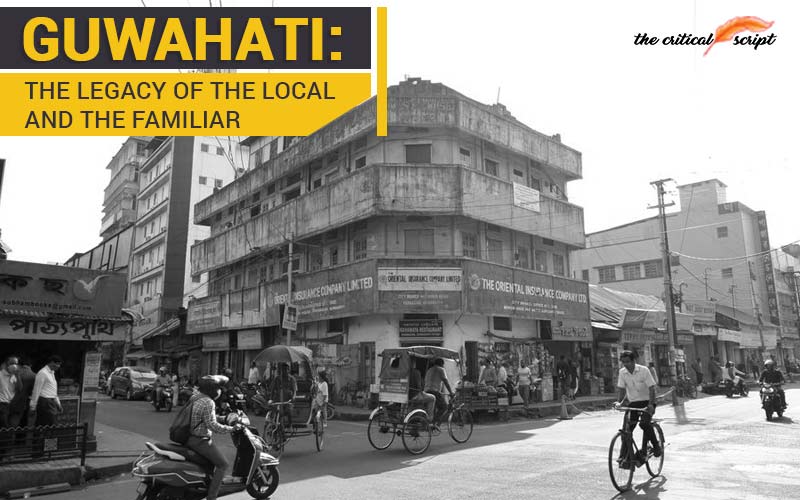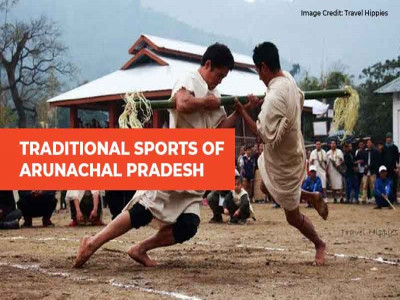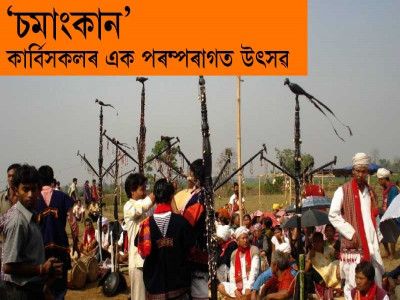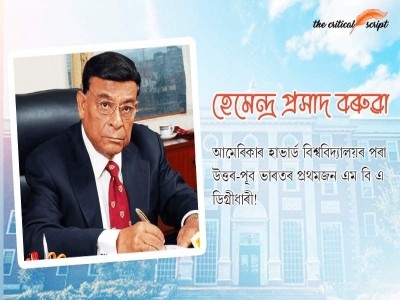
Guwahati-: The Legacy of the Local and the Familiar
The blog aims particularly at local heritages, i.e., the attachment of the natives with their place and culture, the sentiment associated with their cultural/historical practices which they term “heritage”. The centre of this article is Panbazar, Guwahati, one of the oldest establishments of urban concentration in Guwahati, Assam. Panbazar houses more than a century’s worth of historical events as it has stood firmly by the mighty Brahmaputra.
A BRIEF HISTORY OF PANBAZAR
Guwahati 1 marks the start of urban concentration in Guwahati since it is
located in the heart of the city. As we date back to history, we find that when
Pragjyotishpura (former name of Guwahati) used to be a forest, the place that
had the highest number of betel trees (Paan trees) later came to be known as
PANBAZAR. Panbazar got its name from PaanbariMauza which later came to be known
as Panbazar, and the colonial impact has induced the founding of great
commercial enterprises here.
Over the years, Panbazar has given birth to centuries' worth of historical sites and has witnessed memorable historical events and has stood firmly by the mighty Brahmaputra. It has given birth to various “firsts” from the first bakery in Assam to the state’s first school. The British had shaped the foundation of heritage sites of this particular place for its natives to boast of their history.
Being a native, stories of Panbazar fascinated me so much that I wanted to pen down each and every memory that I recorded with my family and the residents here. My grandfather, who has passed almost eight decades in Panbazar, has seen this place evolve.
Panbazar is the epicentre of the city that has given birth to its first of gigantic institutions which makes us glorify the past. He says one cannot take the name of Guwahati without talking about places like Panbazar, Uzanbazar, and Fancybazar. These three places are the pillars of establishing formal, informal, commercial institutions in the city. Panbazar single-handedly holds the credit of having the most important centres like the District Judge Court, Post Office, Treasury Office, etc., all built by the British, the first school and college invigorated by Sir Henry Cotton, who was the Chief Commissioner of Assam at that time, who gifted the state with its first institutions of higher education in the name of Cotton College, now Cotton University, which happens to be one of the best institutions in Assam that produced eminent personalities like Dr.Bhupen Hazarika, Dr.HimantaBiswaSarma, Dr.Amarjyoti Choudhury, and many more.
The college hostels during those days became centres for student meetings, discussions for various college events like debates, elocutions and used as rehearsal halls for cultural events like dance, drama, and singing competitions.
The influence of Panbazar had been responsible in shaping their knowledge and their outlook towards life. Bina Library near Cotton College, Mani-Manik Prakash, Lawyers Book Stall, New Book Stall, Western Book Depot, etc., are some of the places where students visited after college.
Panbazar is also responsible for delivering relishing savouries. Decades ago, the samosa and tea in the Cotton College canteen were available for 40 paise and now it has an extensive menu with all fancy items. Other sweet shops like Kalpana Sweets or Kalyani Sweets, which no longer exist, but at that time these sweet shops used to be crowded with students during their recess.
Cotton Collegiate Government School happened to be the first school in the entire Northeast.
During those days, getting admission into the Cotton Collegiate School was not in anyone’s favour; one had to go through an entrance examination to get into this school. Cotton College outshone its pride for being the best and the only institution of higher education and still holds the record of being the best.
Another historic establishment in Panbazar is the Northbrook Gate: it was built to welcome the erstwhile British Viceroy Lord Northbrook, who visited Guwahati in the year 1874. It was built near SukreswarGhat where the viceroy had anchored his ship. This piece of architecture is unusual because it stood still despite the deadly upheaval of 1897 where the entire city had collapsed. This monument is vigorously outshining its testimonial reputation.
If I were to paint the vicinity of Panbazar, the canvas would not be able to hold the aura of this place. The mighty Brahmaputra has witnessed every ebb and flow of this site, holding onto the roots of ancient constructs like the Northbrook Gate and the D.C Bungalow by its banks.
My father and my grandfather recall how they couldn’t imagine a single day without taking a stroll of the entire Panbazar; it seemed they couldn’t digest their meals if they didn’t go out and stop by the shops just to greet the people because the whole place had become their family and they shared a special bond with the people working in each outlet here.
Political meetings were held in Panbazar by none other than Mahatma Gandhi in the Jubilee Garden, which is now the Panbazar Water Treatment Plant.
People migrated from other places in Assam and West Bengal and had established their businesses here in Panbazar. Speaking of businesses, one such establishment is Mahamaya Restaurant, a century-old eatery that has served the people in Panbazar and the rest of the city. Naroram Barman, a person from Nalbari, Samota came to Guwahati in search of fortune and in the year 1918, he opened this restaurant that has lived up to its reputation of being a popular place for adda for the locals. People can still ditch pizzas and burgers served in fancy restaurants to come and relish the taste of the yellow pulao and chicken curry served here.
Some other such places that are counted among the most valued centres for service like Bharali Brothers, which sold cassettes, radios, and with the advent of globalization, it turned into a showroom of electronic equipment like televisions, CD players, DVDs, etc., Gauhati Shoe Factory, Chitralaya, Kalpataru, College Studio, etc. These trading centres were mostly owned by Bengalis who also did well in the pharmacy business; they would supply all kinds of medical equipment to the nearby hospitals. Panbazar was also famous for having a lane of book shops, among which Lawyers Book Stall happens to be one of the oldest bookstores in Assam. The unique trait of this particular place that excelled in trade and commerce did not believe in making large profits but wanted to be remembered by their service and this trait still remains unchanged. People would come from faraway places to buy essentials like books and medicines from their trusted shops in Panbazar. Apart from that, the natives shared a close bond despite hailing from various cultural, religious backgrounds. The rise and fall in their respective workplaces failed to create any havoc in their personal relationships. Panbazar mostly consisted of Bengalis and Assamese, and later, with the advent of trade, people from other religious backgrounds came to stay.
People have so much love and affection for this place that it grows stronger with age. The solid impact of globalization has had no effect on this place, yes there might have been some major changes, but Panbazar still remains the core of the city. We boast of our culture and the heroes who strived for perfection, but when we look into the lives of these legends, their stories inspire us to do better.
Shaikh Ghulam Ibrahim came to Assam from the Hooghly
district of West Bengal to set up a business. At that time, many British
Officials had settled in the state, around 1883–84. Shaikh Ibrahim started with
small works of supplying goods and rented a place to live in. After he had
enough savings to rent a shop, he started a small store of his own and then
realized the potential of the bakery business in the state. Since most of the
places in Panbazar were occupied by Britishers, he decided to transform his
shop into a bakery, and in 1885 he established SHAIKH BROTHERS BAKERY that sold
bread to the British and also other bakery items. Little did he realize that
this bakery would turn into a legendary bakery and earn massive popularity in
the state. At present, this 140-year-old bakery is run by the third generation
of Shaikh Ghulam Ibrahim, as said by Shaikh Sakhawat Hossain, who has taken
charge to carry forward the legacy left behind by his grandfather. It happens
to be the first bakery in the state and continues to be the best. Every
household in Guwahati has had the taste of their bread or their biscuits and it
would be wrong to say that modern-day biscuits have taken over the taste of
Shaikh Brothers’ biscuits. It witnesses more than a hundred customers per day
who come from all over the city to purchase their items, and no birthday cake
tastes as good as the cake in this bakery. The certificate of excellence is
given by the people who visit this place regularly.
“Customers treat the shop as their own and I always tell them that this shop is
for the public and we are at their service,” as quoted by Shaikh Sakhawat
Hossain. The bond of this place with the natives is familial. Why not? Their
kitchens have the pleasant smell of a number of bakery items purchased from
Shaikh Brothers. It once happened that the owner visited one of their
customer’s homes, but the lady of the house was hesitant to serve him tea. When
he inquired about it, he got to know that they were feeling shy to treat him
because the biscuits that were served belonged to his bakery, and he laughed it
away. He said that he was not concerned with the profits, but these little
moments gave him utmost joy when their relation with their customers is not restricted
to give and take only but it becomes like that of a family.
Panbazar also houses century-old religious institutions
with historic significance.
The Sukreswar Temple, constructed in the year 1744 by the Ahom King
PramattaSingha, is located on the southern bank of the river Brahmaputra and is
known for having the largest lingam of Lord Shiva, which grows in breadth every
year, but the changes in the Lingam are unnoticed. People from all over
Guwahati come to visit the temple on MahaShivratri to seek blessings. The Shiva
Lingam is very sacred and in full possession. It is believed to be in the
Jaagrata state, meaning fully awakened.
The archaeological remains of the temple facing the riverside have their origins from the Pala period and are preserved well to date.
Harisabha is known for its century-old Durga Puja celebration in Assam, starting with its establishment in the year 1915. Harisabha has been organizing Durga Puja and other religious events following proper Vedic rituals and traditions and it has remained intact. Here are a few standpoints on why this place has achieved so much attention and appreciation.
1. The design of the idols is simple and has been sculpted by the same family of artisans for 110 years now.
2. The priest performing the Puja also hails from the generational family of priests that have been performing rituals since its start. The pronunciation of the mantras falls into the ears of every worshipper even when their number is in hundreds. The priest does not use a microphone; his voice is quite audible.
3. There is a traditional practice of carrying the idols on shoulders for immersion. No vehicles are used. The natives carry the idols on their backs in a religious procession to the place of immersion in KasomariGhat in Fancy Bazar. From the last few years, due to less manpower, the idols are being carried in a trolley.
The Bottom Line
Panbazar has transformed this place into a heritage site
making it the epicenter of the city, novice of civilization and hub of social,
cultural convention. Moreover, the attachment of the natives and the ones who
have been associated with the place for work for about centuries now, have so
much respect for the place that relations with their customers have grown old
with time.
It feels surreal to be born and brought up in a historic
place like Panbzar and I often flex about it in front of my friends saying,
“Moi Guwahati-1’r suali dei humse bachke rehna!” :)
These stories and the legacy of this place can only be
preserved by passing down the oral heritage to the future generation.
The legacy of Panbazar is like “Preserving the
treasured”. It depends on how people work for the preservation of heritage
sites and pass down their legacy both living and lived.
Article contributed by Sanjukta Sarma
Disclaimer: The opinions expressed in this article are those of the author's. They do not purport to reflect the opinions or views of The Critical Script or its editor.

Newsletter!!!
Subscribe to our weekly Newsletter and stay tuned.

















Related Comments